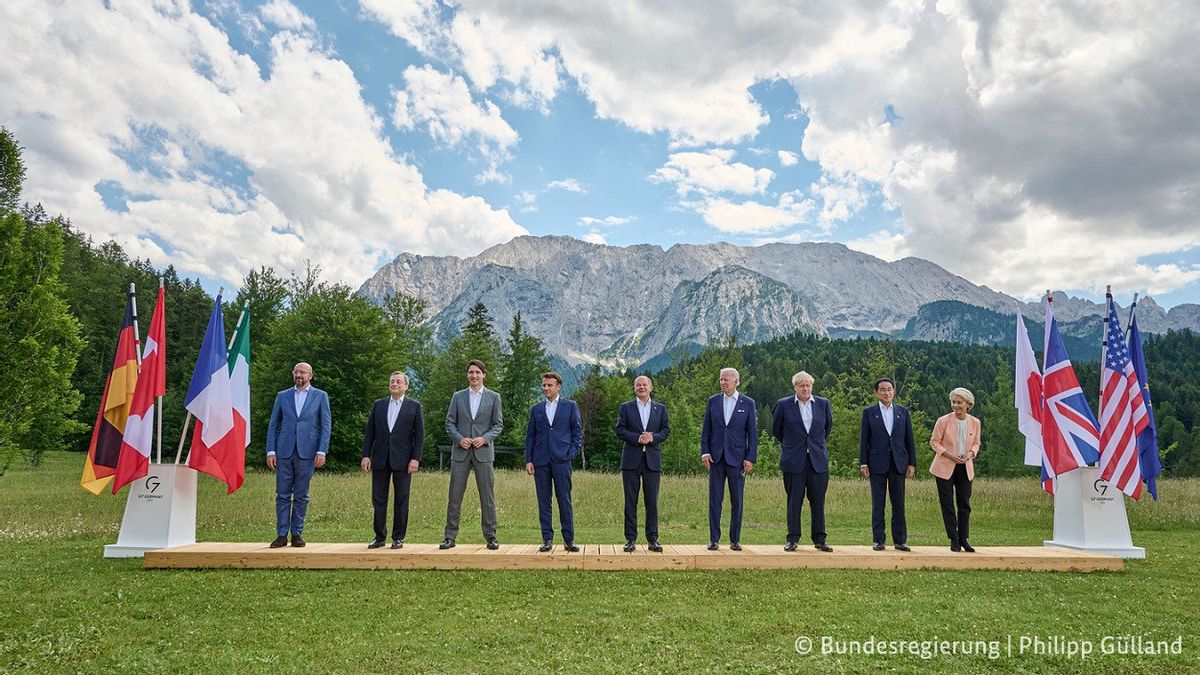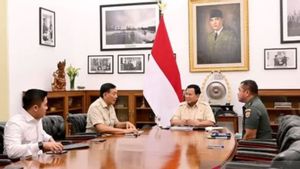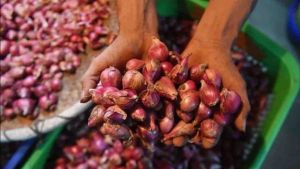JAKARTA - Leaders of the Group of Seven (G7 Countries) on Sunday pledged to raise 600 billion US dollars, or about Rp. 8,897,700,000,000,000 in private and public funds over five years, to finance needed infrastructure in developing countries and counter projects. China's older Belt and Road, worth trillions of dollars.
US President Joe Biden and other G7 leaders relaunched the newly renamed "Partnership for Global Infrastructure and Investment," at their annual meeting held this year at Schloss Elmau in southern Germany.
President Biden said the United States would mobilize $200 billion in grants, federal funds and private investment over five years to support projects in low- and middle-income countries that help tackle change. climate and improve global health, gender equality and digital infrastructure.
"I want to be clear. This is not aid or charity. This is an investment that will benefit everyone," President Biden said, adding that it would allow countries to "see the real benefits of partnering with democracy." .
President Biden said the additional hundreds of billions of dollars could come from multilateral development banks, development finance institutions, sovereign wealth funds and others.
Meanwhile, Europe will mobilize 300 billion euros or about 4,700,316,795 million for initiatives during the same period to build sustainable alternatives to China's Belt and Road Initiative, launched by Chinese President Xi Jinping in 2013, European Commission President Ursula von der Leyen said. at the meeting.
The leaders of Italy, Canada and Japan also spoke about their plans, some of which have been announced separately. French President Emmanuel Macron and British Prime Minister Boris Johnson were not present, but their countries also participated.

China's Belt and Road Initiative (BRI), launched by Chinese President Xi Jinping in 2013, involves development and investment initiatives in more than 100 countries, with projects including railways, ports and highways.
White House officials say President Xi's plans to create a modernized version of the ancient Silk Road trade route have provided little real benefit to many developing countries, with top jobs going to Chinese workers, while increasing rates of forced labor and child labour.
President Biden highlighted several flagship projects, including a $2 billion solar power development project in Angola with support from the Department of Commerce, the US Export-Import Bank, US company AfricaGlobal Schaffer, and US project developer Sun Africa.
Together with the G7 members and the European Union, Washington will also provide technical assistance of USD 3.3 million to the Pasteur de Dakar Institute in Senegal, in order to develop an industrial-scale flexible multi-vaccine manufacturing facility in the country, which could eventually produce COVID -19 and other vaccines. .
The US Agency for International Development (USAID) will also commit up to $50 million over five years to the World Bank's new global Child Care Incentive Fund, a project aimed at addressing gaps in appropriate childcare infrastructure.
The English, Chinese, Japanese, Arabic, and French versions are automatically generated by the AI. So there may still be inaccuracies in translating, please always see Indonesian as our main language. (system supported by DigitalSiber.id)













